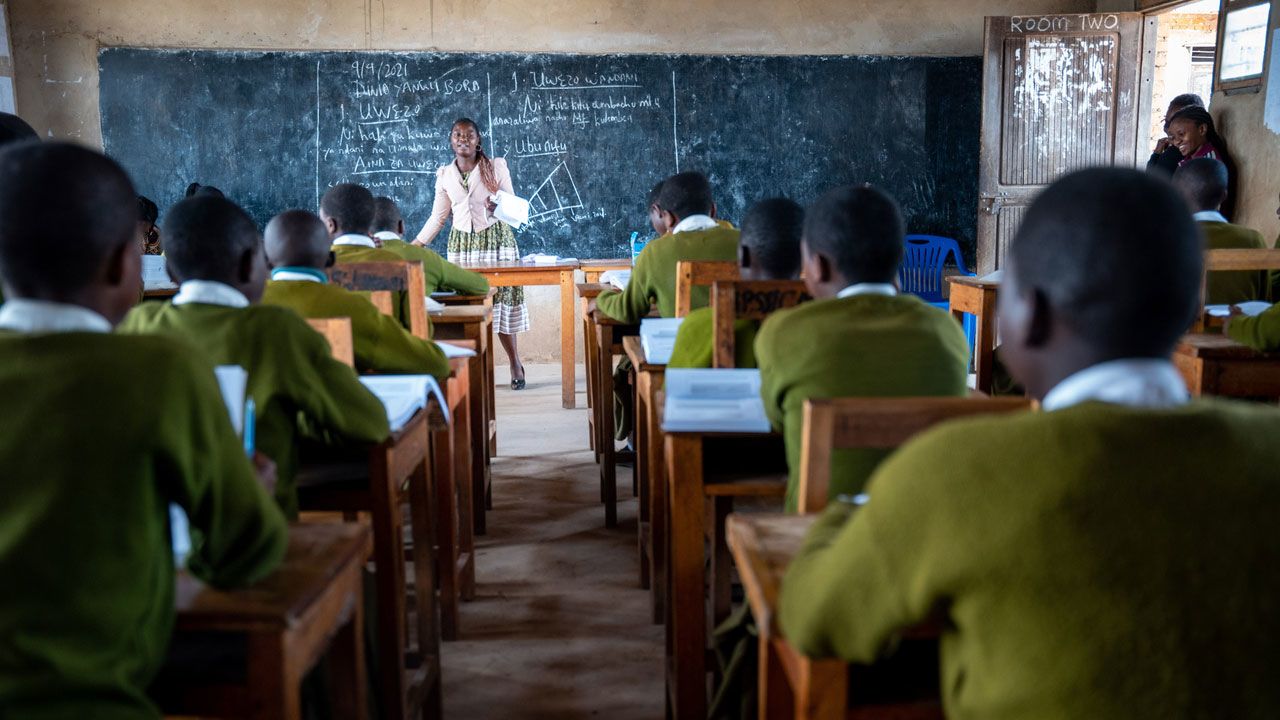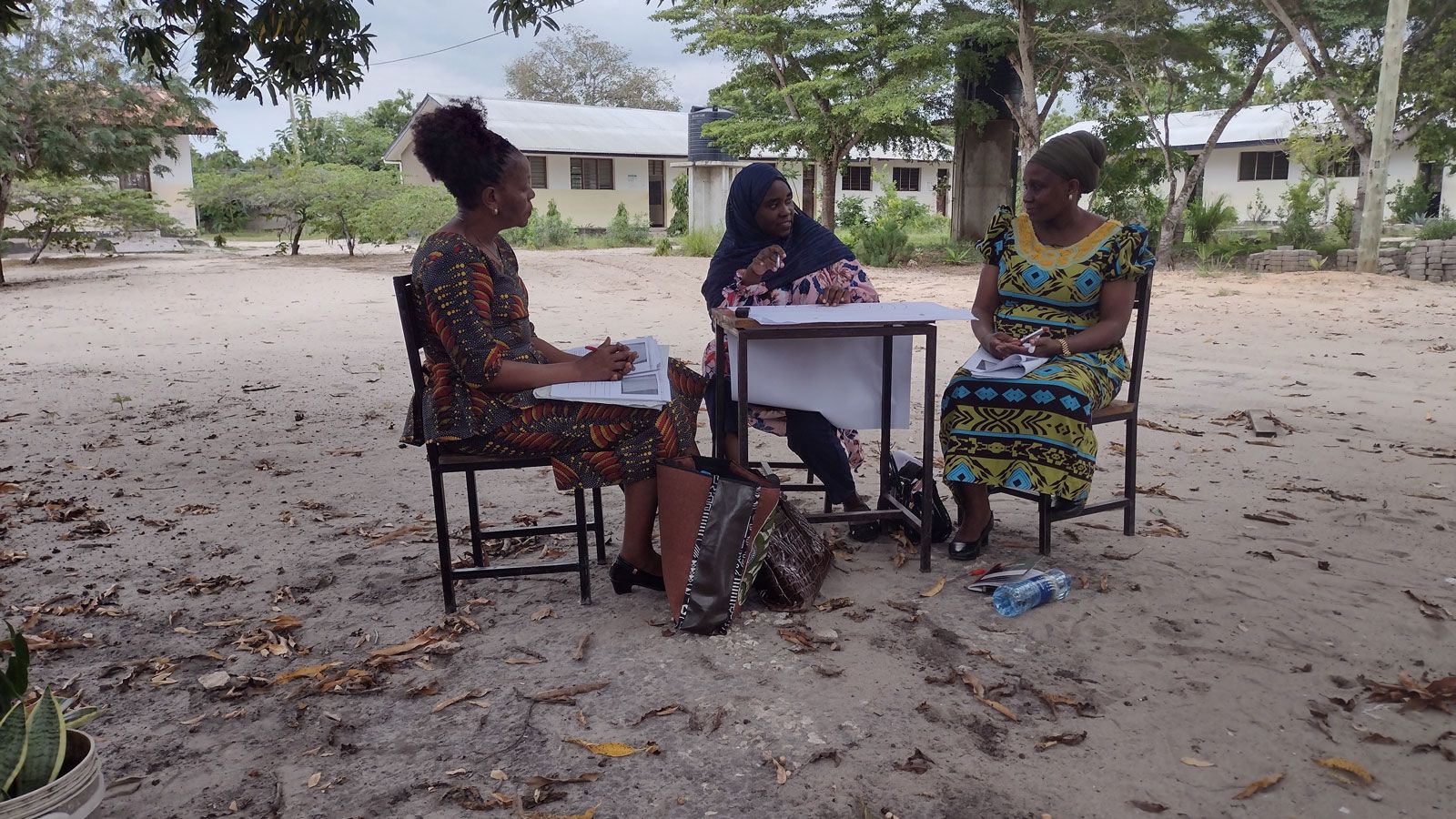

Mentors for under-privileged girls in Tanzania are challenging harmful gender social norms

Mentors delivering a life skills programme for under-privileged girls have become agents of change, challenging harmful gender social norms in their wider communities, new research shows.
The study assessed the social impact of an initiative in Tanzania, run by the non-governmental organisation, Campaign for Female Education (CAMFED). CAMFED works in parts of Africa where girls’ access to education is limited and drop-out rates are high, including due to early marriage and teenage pregnancy.
Its principal goal is to support the education of under-privileged girls through a range of activities delivered by “Learner Guides”.
Learner Guides are local young women, often CAMFED graduates, who mentor students in their communities. Their main task is delivering a life skills curriculum called ‘My Better World’, but many also provide informal academic and practical support, for example by running homework groups and paying home visits when students are absent from class.
The new study, conducted in partnership between the University of Cambridge’s Research for Equitable Access and Learning (REAL) Centre, the Institute of Gender Studies at the University of Dar-es-Salaam in Tanzania and CAMFED, evidences for the first time that, beyond education, the Learner Guide model is challenging wider, harmful social gender norms. Researchers found that they were contributing to a broader, gradual shift in attitudes towards women in communities where their interests have often been second to those of men.
The effect of the Learner Guides’ engagement in communities was most closely linked to changing attitudes towards the value of girls’ education and, perhaps more strikingly, to changes in attitudes around gender-based violence.
The researchers stress that Learner Guides are rarely the only stimulus for a change in gender social norms, which in many cases requires wider policy reforms. They add, however, that their presence on the ground within their communities is catalysing positive change.
It’s a really positive by-product of the Learner Guides programme.
REAL Centre lead researcher for the study Dr Luisa Ciampi said: “CAMFED’s specific goal is to improve girls’ education, but they are also changing wider attitudes towards gender. It’s a really positive by-product of the Learner Guides programme.”
Dr Rosemarie Mwaipopo, who led the research at the University of Dar es Salaam, said: “The vast majority of interviewees we spoke to attributed some change in gender norms to Learner Guides. It is clearly not down to Learner Guides alone – indeed there is no way they could achieve this in isolation – but due to their unique mode of operation, reaching young males and females at the lower secondary school level within their school environs, sometimes sharing with them how to address gender-related challenges on a one-to-one basis, or consulting with grassroots leadership whenever the opportunity arises.
The research focused on eight administrative wards in which Learner Guides had been active for at least five years and where gender inequality was also high. Interviews with 45 leaders and government officials were used to establish what constituted typical gender attitudes within these areas. The team then interviewed 31 Learner Guides to map out who they engage with in the course of their work. These included, for example, teachers, health workers, the police, community groups, traditional and religious leaders, village committees and parent support groups.
The researchers then carried out 146 in-depth interviews and 32 group discussions with key community groups and members to assess how far gender social norms were changing in their communities, and whether this was linked to the Learner Guides’ efforts.
Across all locations, six broad clusters of harmful attitudes were identified: relating to education, early pregnancy, early marriage, gender-based violence, work, and decision-making and leadership.
The report recounts specific statements embodying these attitudes, which included, for example, the belief that: “menstruation is shameful”; “female disobedience deserves punishment” and that allowing a teenage mother to return to school was “rewarding bad behaviour”.
Most interviewees felt that Learner Guides were helping to challenge such opinions. Over 70% said Learner Guides had changed education-related norms, such as the view that girls should attend school less than boys. Perhaps more surprisingly, two thirds of participants also believed that Learner Guides were helping to reduce gender-based violence through providing awareness and education of what constituted gender-based violence and where to report such cases to both students and the community.

Learner Guides suggested that this partly reflects the scope of the “My Better World” programme, which covers themes such as citizens’ rights, self-confidence and sexual health. The National Director of CAMFED Tanzania, Nasikiwa Duke, said: “The lessons increase girls’ confidence in their right to say ‘no’ when something is not OK. Sometimes it’s as basic as helping them to understand what gender violence actually is, where that has not always been clear.”
The community also reported that Learner Guides followed up on cases of gender-based violence by speaking with family members and making local officials aware of cases. It mentions one specific case in which an early marriage was prevented on the wedding day itself, thanks to a Learner Guide’s intervention.
Learner Guides were also seen as positive role models for girls in their communities in terms of work and leadership opportunities. “They have changed the perspective of our daughters,” one interviewee said. “In the past, our daughters … lacked confidence; even if opportunities arose they were fearful… Now they can seek jobs, participate in meetings and ask questions.”
The impact of Learner Guides on different gender social norms was variable. With some notable exceptions, for example, they generally had less of an effect on preventing early marriages and early pregnancies, than they did on girls’ access to education and reducing gender-based violence.
The report also stresses that Learner Guides are part of a wider process of gradual change. In recent years, for example, the Tanzanian government has undertaken a concerted policy effort to reduce violence against women. Dr Nkanileka Mgonda, Co-Principal investigator and one of the report authors from the University of Dar es Salaam, said: “Arguably, the biggest driver of change is policy reform. What that means, though, is that Learner Guides can become agents of that change on the ground.”
Professor Pauline Rose, the study’s Principal Investigator in the REAL Centre, said: “Within schools and the community, Learner Guides clearly play an important support role in shifting wider attitudes towards women and girls. As well as acting as mentors, they have become advocates for girls’ education, actors who challenge harmful practices, and role models who embody a more positive future for women.”
The full report can be found here.
Image in this story: CAMFED Learner Guide Elizabeth leads a ‘My Better World’ self-development session in Tanzania’s Kilolo district. Credit: Kumi Media/CAMFED. / Consultation during the pilot study in Bagamoyo, Tanzania, Luisa Ciampi.